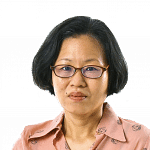I used to think weekends in the city are for shopping, eating and chilling, but thanks to the National Library Board (NLB), I now realise they are also a great time for learning.
A fortnight ago, the NLB hosted its inaugural Four Conversations at which an American creativity expert, a British cancer researcher, an Egyptian diplomat and I, a local journalist, delivered lectures around the theme of New Thinking For A New Age over a Saturday and Sunday. The sessions were free and members of the public quickly snapped up the seats at each of the four lectures through online registration.
Sir David Lane, one of the scientists credited with the discovery of the p53 cancer gene and chief scientist at Singapore's Agency for Science, Technology and Research, was one of the speakers. He seemed pleasantly surprised that people here were so eager to learn, they would happily spend a Saturday afternoon listening to him speak about curiosity and breakthrough thinking.
The series came about because the National Library believes it must be part of the learning ecosystem, said its director, Mrs Wai Yin Pryke. And one could hardly have asked for a better venue than the library's Pod, on the 16th floor of its building in Victoria Street and with floor-to-ceiling views of Singapore's civic district.
That weekend, and the conversations I had in relation to those four lectures, helped me see for the first time that a city is really a campus for learning, and that a global city with its pool of resident and visiting talent is a vast network of knowledge and insights that anyone eager to learn would be smart to tap into, if given a chance.
Add to that a city's cultural institutions: its libraries, museums, theatres and concert halls; not to mention its research laboratories, technology hubs, educational and professional institutes, and you end up with a landscape for lifelong learning that any single organisation would find hard to rival.

These are all sources of intellectual and cultural capital which enrich our city and society beyond the material. Here is a new source of wealth that is all the more vital in today's knowledge economy where education and learning are what may set apart those who can thrive in a world of rapid change, from those at risk of falling behind.
So even as I celebrate how we - the materialistic, pragmatic people of Singapore - are learning to be rich in ways less easy to quantify but of immense value to the human spirit, I must also ask if these new riches are being well distributed across society. For if there are new ways to be rich in 21st-century Singapore, then surely there must also be new ways to be poor?
Here, I am not talking about material poverty, although that still exists and needs to be addressed, but about the kind of poverty that results from not knowing how to access the best that a city has to offer in terms of its intellectual and cultural capital. Is there a risk that within this global city are enclaves that cater largely to the well-educated rich and middle class, and to which the less educated and poorer members of society have little access? In other words, how can the circles of learning be enlarged to draw in a larger, more diverse group of citizens and residents?
A good place to start is by increasing the number of spaces and activities that are free and open to the public and getting the word out about them. The public libraries have always been free and it is wonderful that the Government took a decision a few years ago to make the national museums and art galleries free to Singaporeans. A second step can be to reach out to those who have never attended such activities and know little about them, and who may have never even stepped into a museum or art gallery or the National Library.
In the United States, Chicago has pioneered a movement called Cities of Learning built around a digital platform that makes visible the large number of programmes for young people and their parents taking place in various parts of the city year round.
It came about after the mayor's office approached the MacArthur Foundation for help in setting up such a platform. From the outset, underprivileged youth and their families were a focus of attention as a key aim was to find ways to enrol these young people in programmes over the summer so they would not lose their learning during the three-month break from school.
On its website, the Chicago City of Learning(CCOL) describes itself as "a groundbreaking initiative that joins together learning opportunities for young people in a way that allows them to think about, pursue, and develop their interests. CCOL breaks down the false barriers between learning that happens in school and learning that happens outside of school. Through CCOL young people can take new paths of discovery, explore the city's rich resources and find out what they can learn, make, do, and ultimately become".
It goes on to explain that "CCOL grew out of the city's 2013 Chicago Summer of Learning in which more than 100 youth-serving organisations joined together to make their programmes visible. Youth participants earned digital badges that provide permanent recognition of the achievements made by youth through their activities".
These activities include design workshops by the Chicago Architecture Foundation, sports and outdoor activities by the city's park district, robotics programmes by its public schools, a workshop on words by the public library, arts and crafts and digital media programmes by a non-profit called After School Matters, a family day by the Art Institute of Chicago and many many more. By attending and taking part in these workshops, young people earn digital badges for skills that range from writing and sketching to digital model making and 21st-century problem solving and collaboration.
When Chicago debuted its Summer of Learning in 2013, 20,000 young people took part and 100,000 badges were awarded. Since then, the Cities of Learning movement has spread to Los Angeles, Dallas and Pittsburgh. For Dr Nichole Pinkard, whose non-profit created the blueprint to make the City of Learning idea actually work, its success will hinge on its ability to reach underprivileged kids.
"The fear I have," she said in an interview in 2014, "is we provide this great system that ends up empowering parents who are already active to snap up the best opportunities for their kids.
"We don't want to create more barriers for the kids who need this the most. That's how we'll hold ourselves accountable - how do we nimbly move the programme so it's not just accessible but desirable to a wide range of kids?"
Of course a city of learning does not have to start and end with programmes for young people. There can be programmes for people of all ages, including seniors who want to keep on learning, and a platform for making all such opportunities visible.
If government agencies, non-profit groups and the private sector want to come together to work on this idea, the possibilities are endless.
One lesson I learnt in the city and which I will never forget took place at the Singapore Art Museum in Bras Basah Road many years ago when I was training to become a docent or volunteer guide. One of our trainers said the first thing she did with any group of visitors to the museum was to look out for the persons who were most likely to feel left out, usually either the very young or the elderly. And she would make a special effort to make them feel included, whether by engaging them in conversation or pointing out where the lift was so the older person would not have to climb the stairs.
Those words of hers have stayed with me because they encapsulate what it means to be a great docent. They also point to what makes for a great city, which is one that finds ways to include those most likely to be left out.
- The Four Conversations videos will be posted on the National Library's Facebook page, NationalLibrarySG. Readers can follow the Facebook page for updates.


